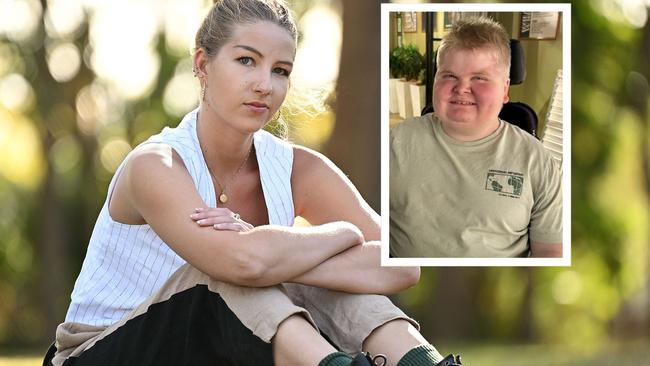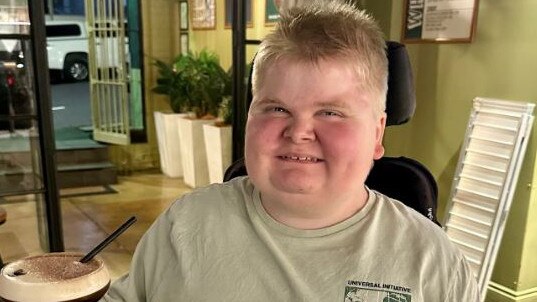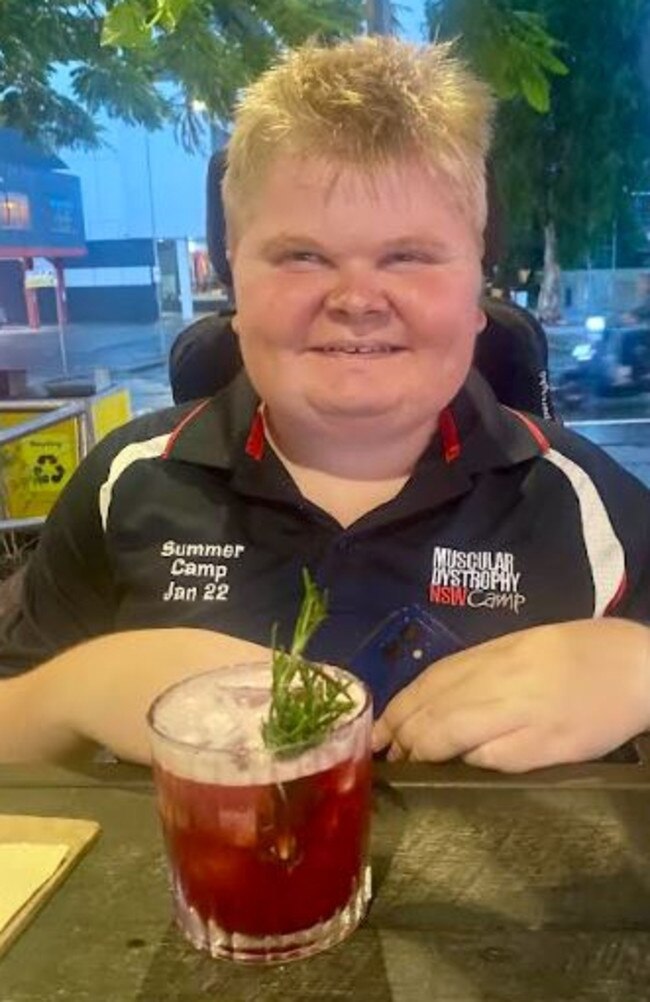Calls for changes to NDIS after death of Jack Bailey
A teenager living with a devastating muscle condition spent the last months of his life in anguish, sending a final desperate text message moments before he died asking whether he had any response from Bill Shorten about the status of his NDIS funding.

A final text message sent from a teenager moments before he died about his NDIS funding has left his grief-stricken family and his support team demanding change to the system.
The message was from Brisbane university student Jack Bailey to his occupational therapist Izzi Harman.
The 19-year-old asked Ms Harman if she had received a response to their letter calling on National Disability Insurance Scheme Minister Bill Shorten to reconsider his case.
“He sent me a text asking if we had a reply at 10.26am and his fatal cardiac episode started at 10.30am,” Ms Harman said.
“It was quite literally the last thing he ever did.”
Mr Bailey lived with late-stage duchenne muscular dystrophy, a degenerative muscle condition that meant he was confined to a wheelchair and reliant on 24-hour care.
In the months leading up to his death, the National Disability Insurance Agency, which governs NDIS funds, unexpectedly changed his service plan.

The teenager achieved many goals in his short life.
Mr Bailey moved out of home and interstate, studied a double degree at university and worked as a lived-experience disability adviser.
He was an enthusiastic powerchair footballer and a much-loved member of the Queensland Powerchair Football Association.
Ms Harman said, however, the last months of his life were filled with anxiety and uncertainty after the NDIA unexpectedly took away his access to his team of 24-hour support workers.

On June 17, Mr Bailey was alone in his apartment when he suffered a life-threatening cardiac incident, just managing to call himself an ambulance before blacking out.
Ms Harman described his survival as nothing short of “miraculous”.
“I was so angry, I wrote that this could happen in all my reports and he got super lucky with the first cardiac incident, it was pure luck he felt a bit sick and dizzy so he called an ambulance for help before he blacked out,” Ms Harman said.
“Jack’s family then gave the NDIS an update about his situation, we told them what had happened and we just didn’t get much acknowledgment of that.”


According to Ms Harman, in the lead up to Mr Bailey’s support plan expiring he spent hours on the phone with the National Disability Insurance Agency trying to ensure he would have adequate care in place.
“He was getting so stressed and even said to me at one point that he was getting anxious going to sleep every night because he wasn’t sure if he would have someone there to get him out of bed in the morning,” Ms Harman said.
She said in a rush to put a plan in place, the NDIA made Mr Bailey’s support workers’ funding agency managed.
This left the teenager unable to pay his well-established and personalised support team as he had previously done.
While some of Mr Bailey’s support workers continued to assist him for free, the NDIA’s move meant he was alone for periods of time in his apartment.
Ms Harman claimed inefficient staffing, a lack of training and ineffective processes when it came to Mr Bailey’s planning review meant his high-level needs were not taken seriously.
When Mr Bailey suffered a second, fatal cardiac incident in his apartment on Sunday, August 11, he still had not been granted around-the-clock care by the NDIA.
A carer was with him when he died but he had not been under 24-hour care.

On Monday, an NDIA spokeswoman said it was “incorrect” to say there had been a cut in funding and Mr Bailey had support during the day and further on-call support as required.
“The National Disability Insurance Agency (NDIA) has extended its deepest condolences to Jack’s family and acknowledges the incredibly difficult time they have faced,” she said.
“The NDIA’s priority is to provide all NDIS participants with the disability supports they need.
“Jack had continual NDIS supports, including support each day and access to funding for additional on-call support as required. It would be incorrect to say there was a cut in Jack’s NDIS funding.
“Jack’s NDIS plan which commenced in May 2024 was valued at over $531k and was equivalent to his previous plan which began in May 2023.”
Ms Harman, whose work is predominantly with clients suffering from various forms of muscular dystrophy, said she feared many lives of those reliant on the NDIS were at risk.
“Jack had a really beautiful full life before the NDIS let him down,” Ms Harman said.
“They didn’t put a planning meeting in place when they needed to, Jack was meant to have reviews every year but it had been over two years since he had a review.
“We said he needed 24-hour support or he might die and they didn’t schedule the meeting, then when they finally did they told us they hadn’t even read Jack’s documentation.”

In a statement, Mr Bailey’s parents said for years the NDIS enabled their son to live his “absolute best life”, but ultimately failed to provide the security and essential support he needed leading up to his death.
“Bureaucracy, red tape and incompetence caused Jack significant stress and anxiety, ultimately placing him at unnecessary risk on June 17, 2024,” his family said.
“Although Jack is no longer with us, we want to ensure that we learn from his experiences and that his legacy of a life well-lived, supported by the NDIS, continues to inspire.”
A request for a response was sent to Mr Shorten’s office.
More Coverage
Originally published as Calls for changes to NDIS after death of Jack Bailey




